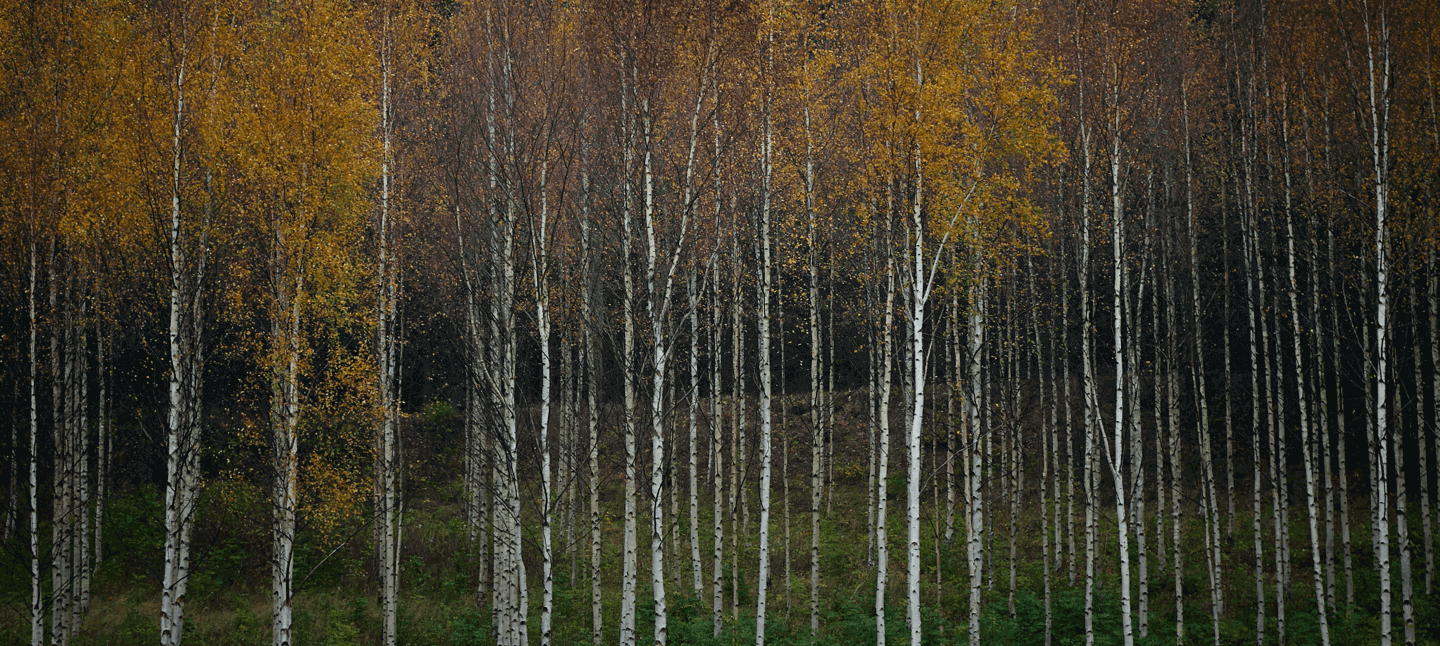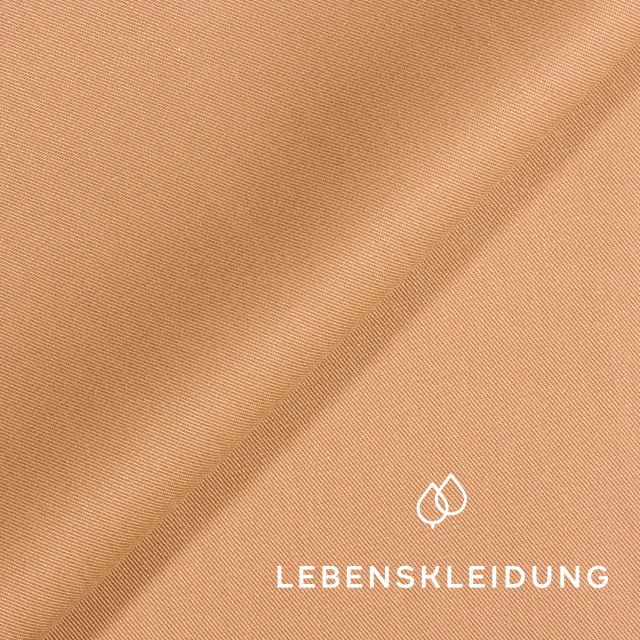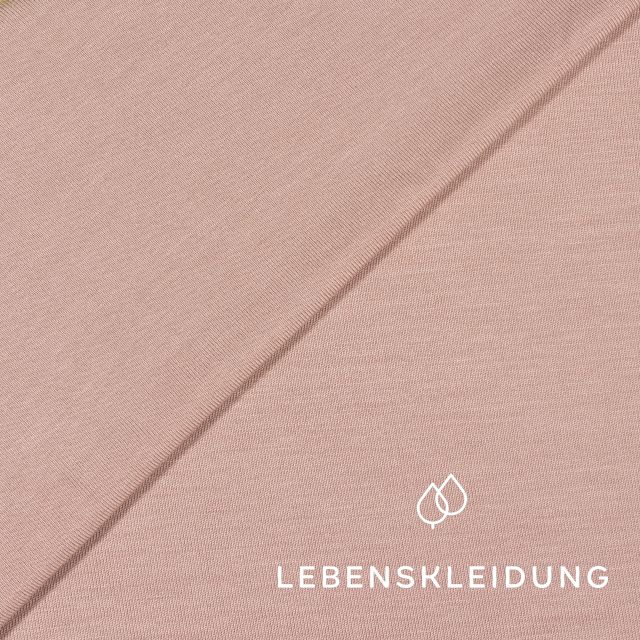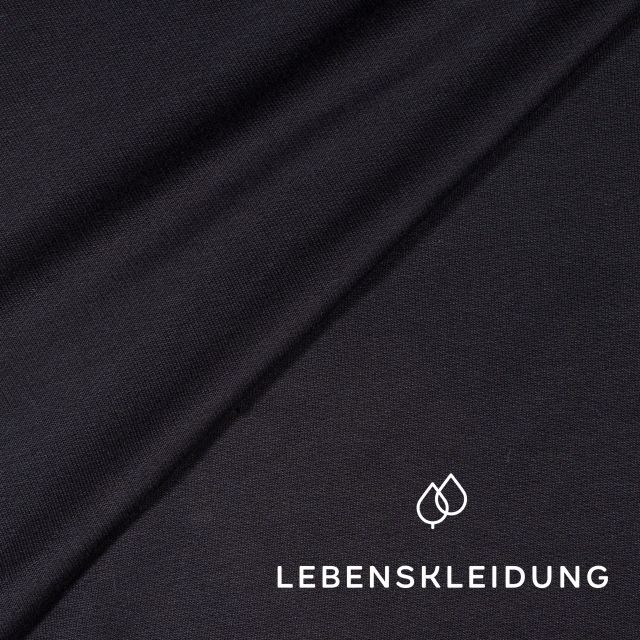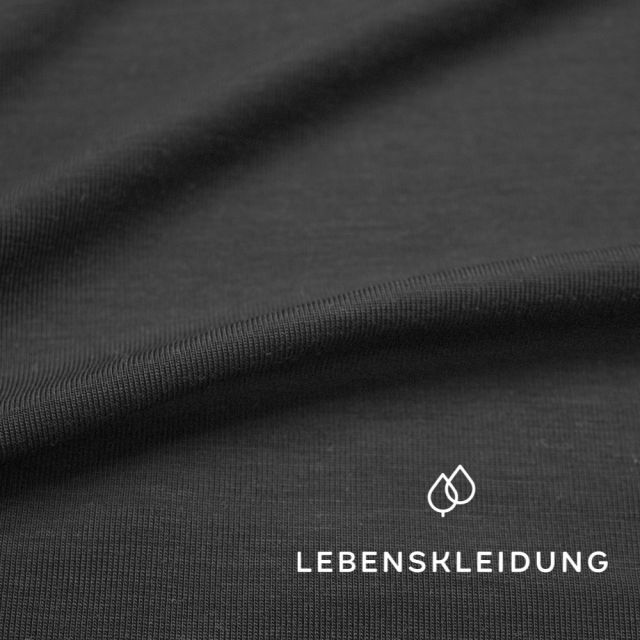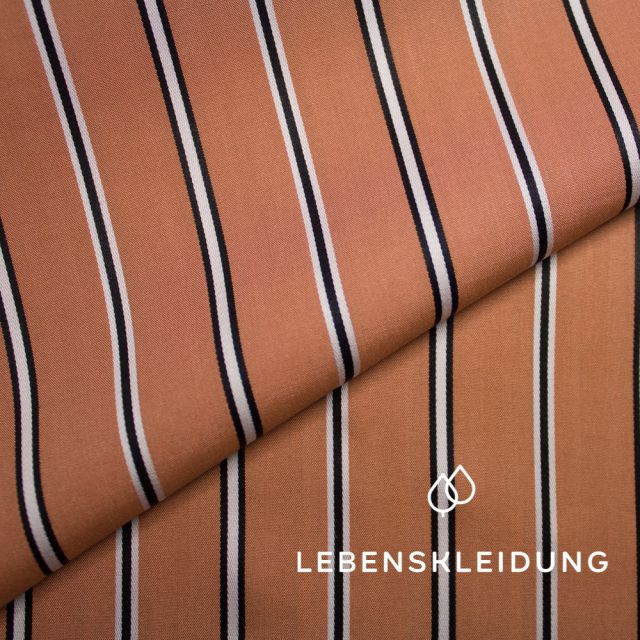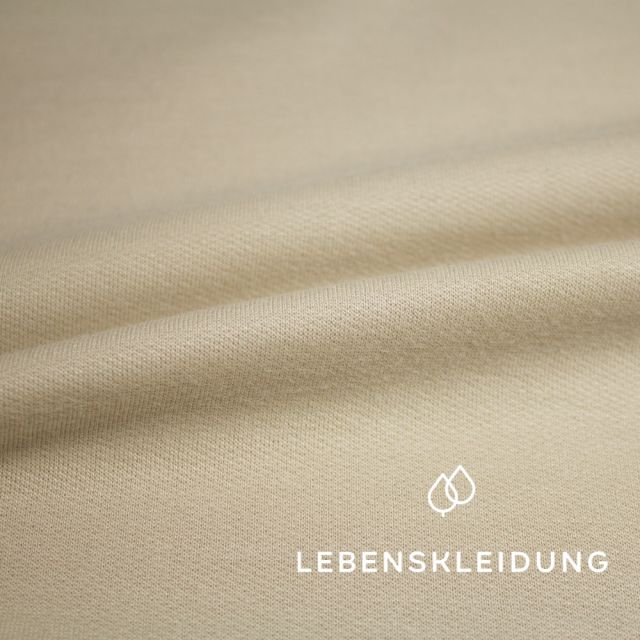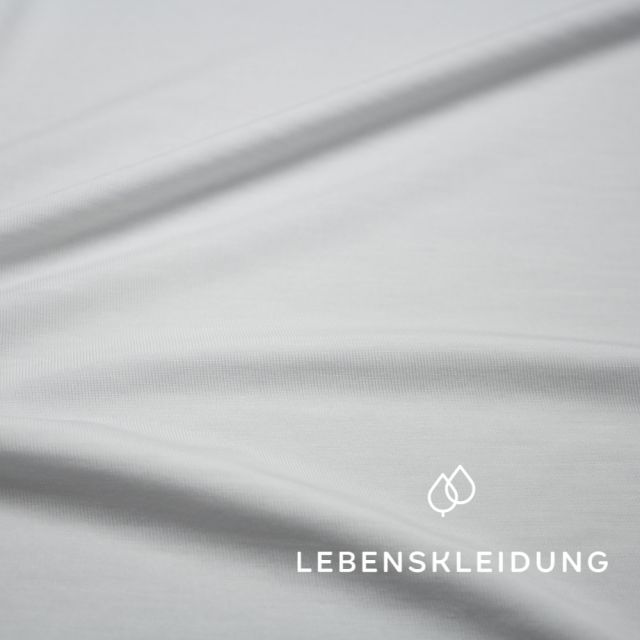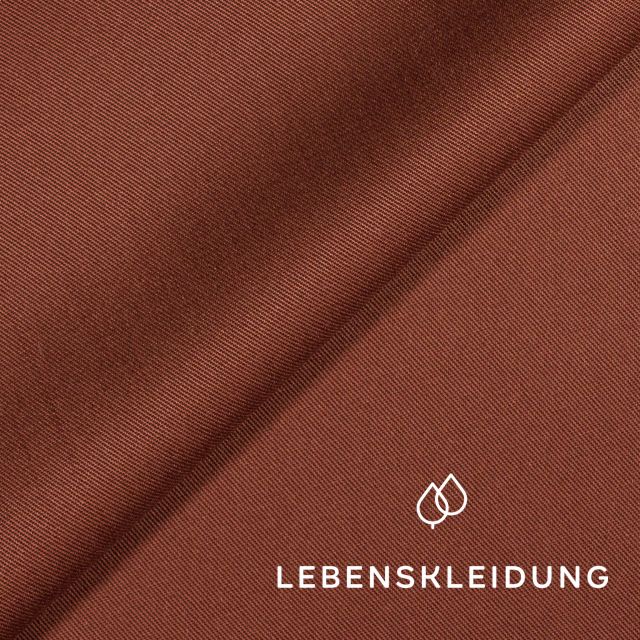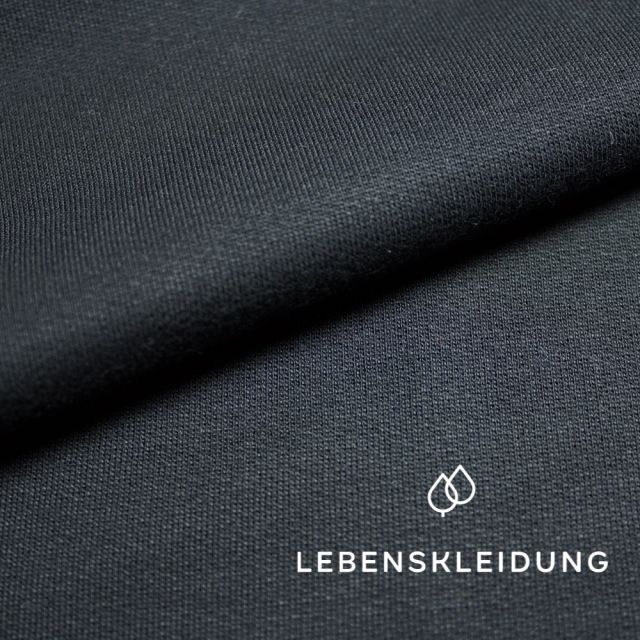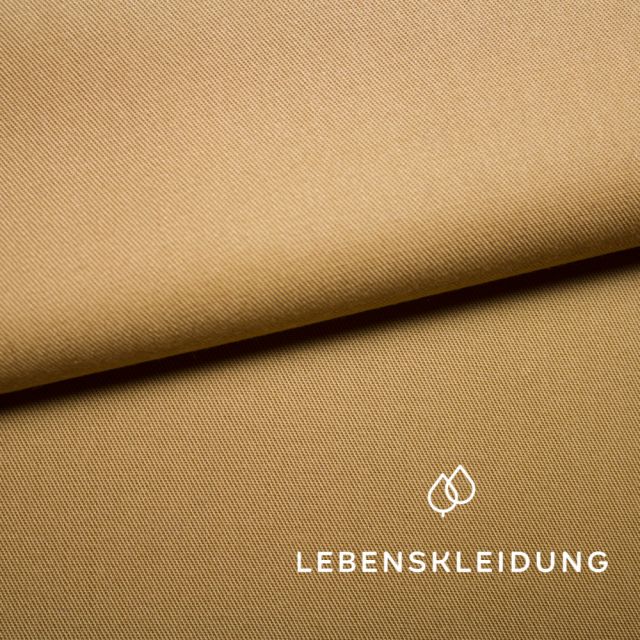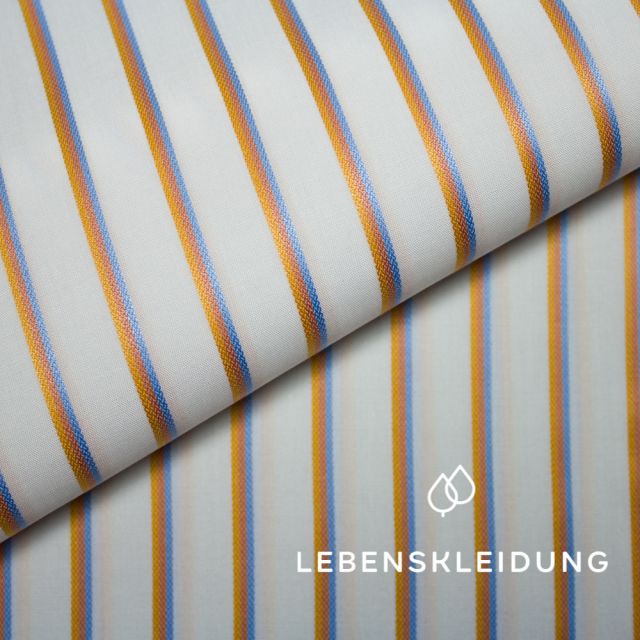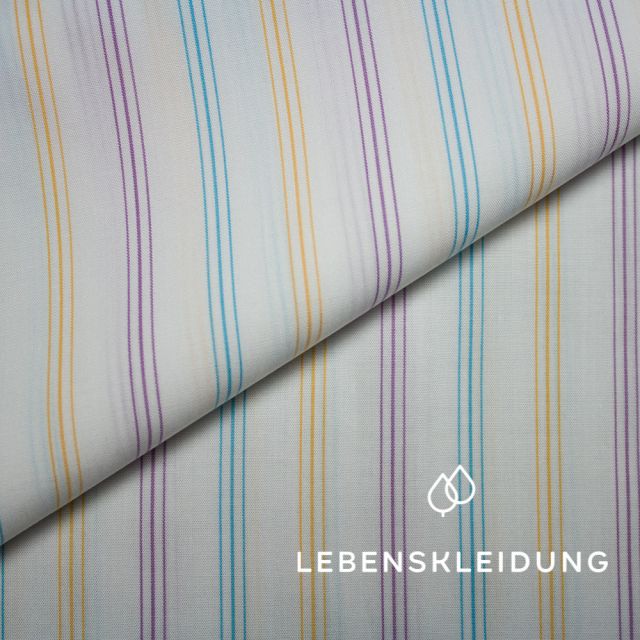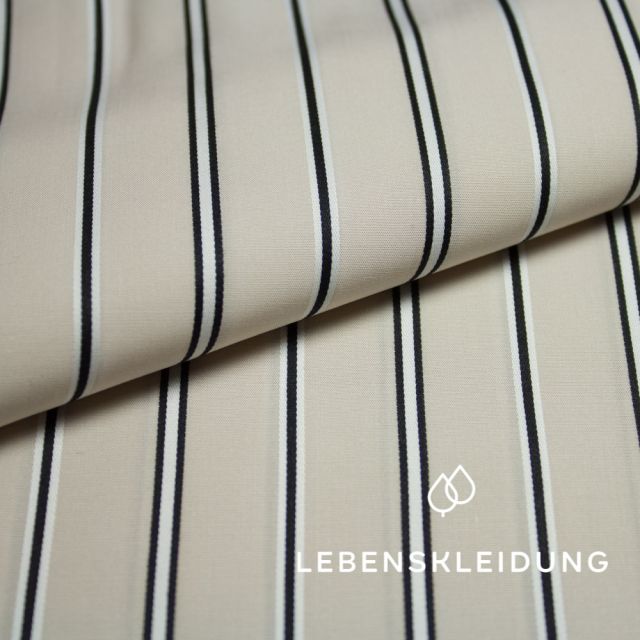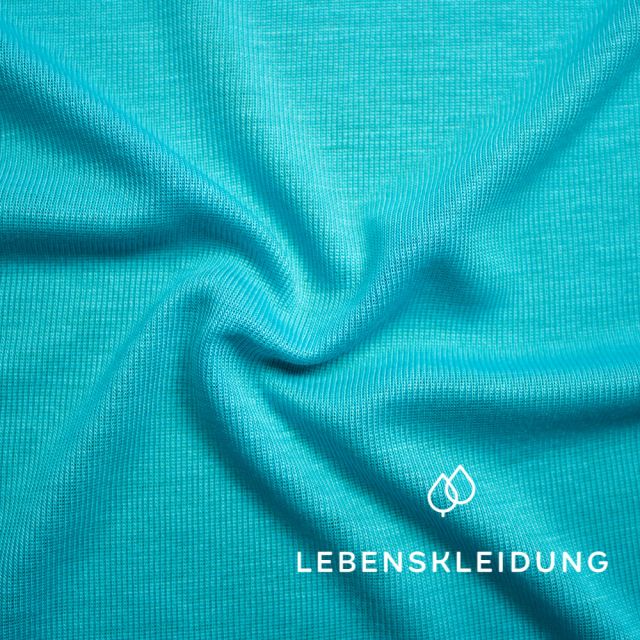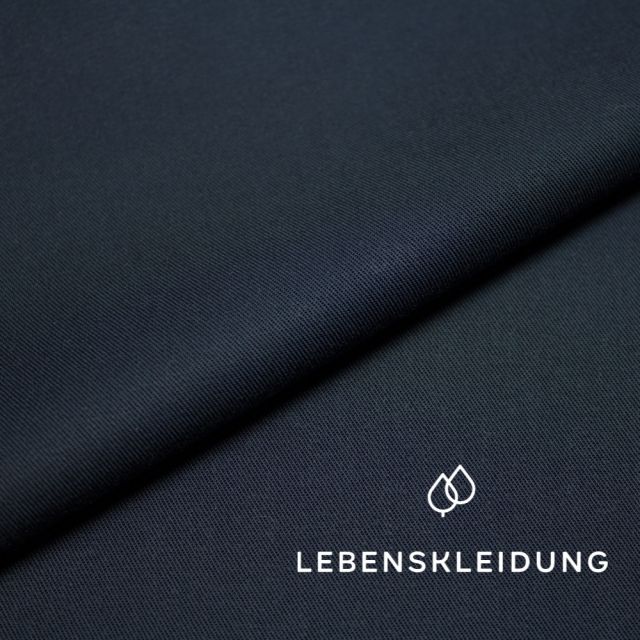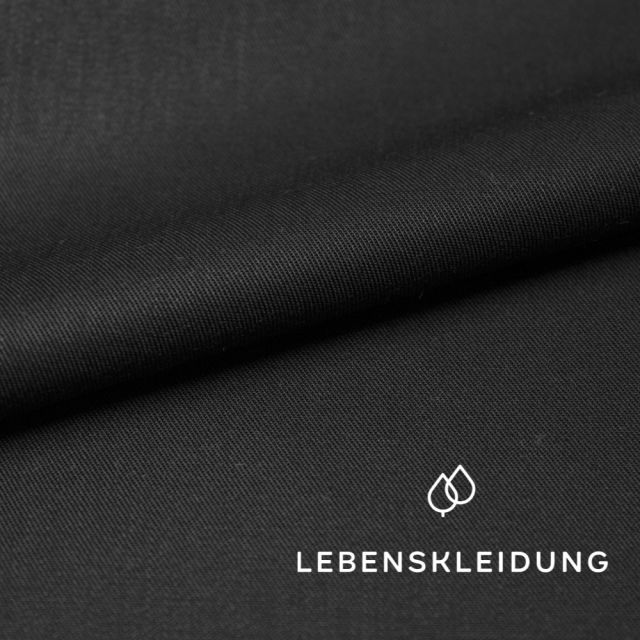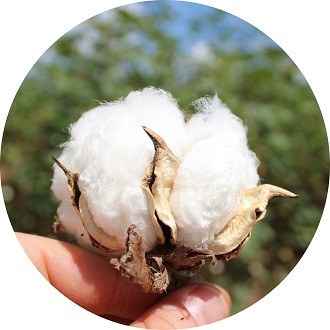What is viscose?
Our Tencel™ and Refibra™ fabrics are not only marvelous innovations in their look and feel, they are also convincing in the manufacturing process. It is very similar to that of viscose, because wood is the starting material here as well. Viscose is, roughly speaking, a synthetic fiber made of regenerated cellulose. In the classical viscose process, it is being produced in three steps.
• First, the so-called spinning solution is produced, for which the raw material – often beech, spruce or eucalyptus – is chemically processed so that the cellulose dissolves from it. The result is a cellulose pulp, which is first decomposed by a caustic soda solution and then mixed with carbon disulfide. The resulting mass is quite thick or, as the technical term is, viscous.
• After further venting and separating steps, a mass is created which can be spun. It is pressed through tiny spinnerets that have an impact on the shape and properties of the threads and create the yarn from which the textiles are later made.
How can viscose be sustainable?
The conventional viscose process unfortunately does not work without the use of chemicals that flow into the sewage system and is therefore not an option for us. The processes for making Tencel™ and Refibra™, on the other hand, show that there are other ways. The origin here too is the cellulose fiber. The so-called lyocell fiber technology, which was developed by the Austrian company Lenzing, however, ensures that the auxiliaries used during production – primarily water and chemicals – can be collected in a circulatory system and thus fed back into production.
• This is called a closed-loop procedure. The recovery and reusability of the chemicals are in the foreground and with great success: More than 99% of the solvents used can be recycled. Another plus: The end products made from the fibers are compostable and biodegradable in water.
• In addition to the raw material wood, the Refibra™ technology also uses cotton blends from the clothing industry and is even more consistent in terms of the circular economy. As you can see, the production of viscose and sustainability are in principle not mutually exclusive, but must be thought of together in an innovative way.
Our Tencel™ fabrics
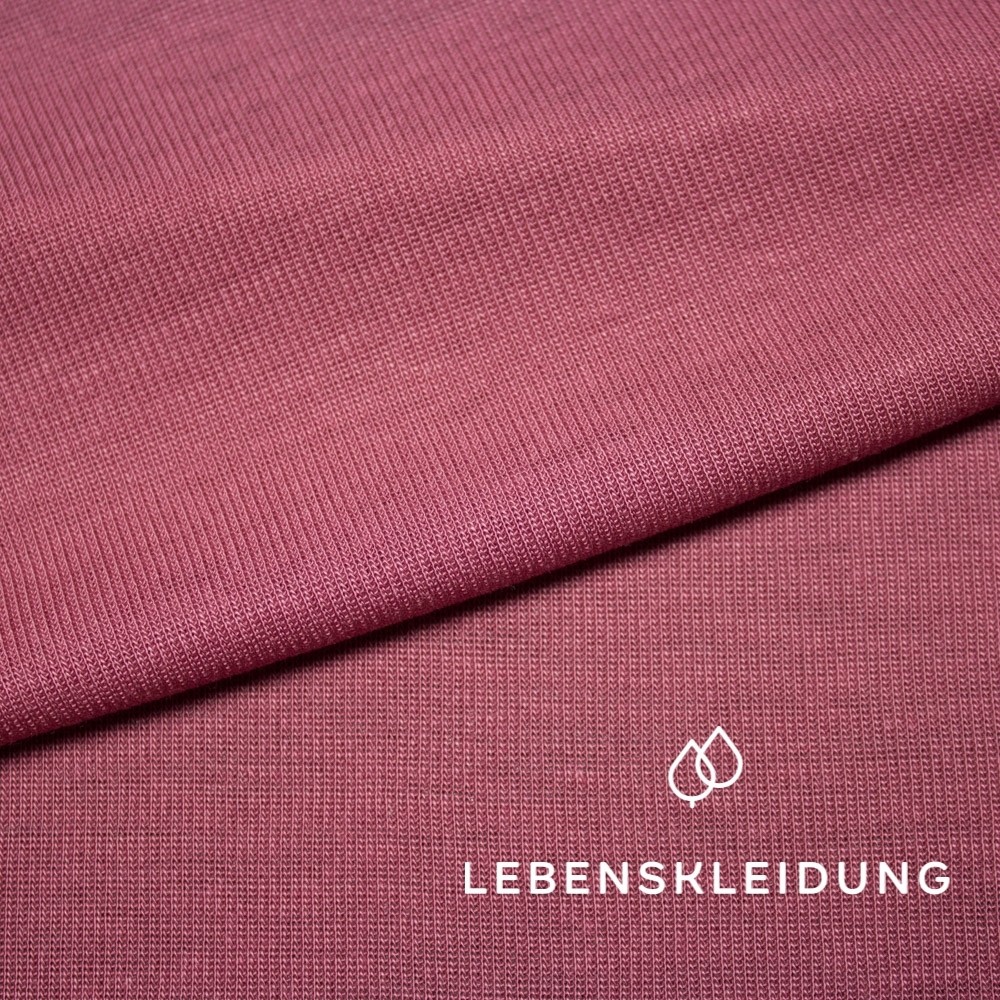
Our Refibra™ fabrics

Water consumption in lyocell production is around 80% lower than in conventional cotton processing. Certainly: In terms of energy, the balance sheet is a little worse, but Lenzing has committed to using 100% renewable energy in its production processes. And last but not least: The result, the material that comes from Refibra™, is seriously fantastic. Breathable, with better moisture absorption, antibacterial and bleach-free. It looks beautiful, falls perfectly, is of extremely high quality and can itself be recycled again, to think the loop through to the end. The downside: A company that operates on the mentioned scale cannot always trace everything down to the last detail. Specifically, this means we do not yet know as much as we would like about the conditions under which the types of wood used – eucalyptus, pine, spruce, acacia, birch, beech, aspen and maple – grow and thrive. What we do know though is that the wood is FSC- or PEFC-certified and gets produced in Heiligenkreuz in Austria. And also we would not have chosen to work with Refibra™ if after a lot of deliberation and a rather nice visit to Lenzing in Austria we weren’t fully convinced by the positive aspects convincing us that this project is worth it: for you, the beautiful fabric and the many right ideas and impulses. That’s why we‘re mostly excited to introduce you to the Refibra™ fiber in a weaving and knit quality this season and hope you can share that joy with us. You can still share appreciation, criticism and everything else that is on your mind – we would really like to hear your opinion on both our pick and, more importantly, the fabrics!

